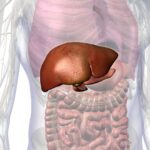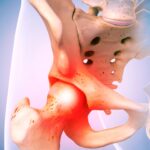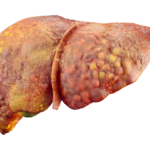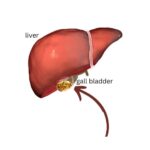Morning sickness is a common experience during pregnancy, often characterized by nausea and vomiting. Despite its name, this condition can occur at any time of the day. Understanding the causes, recognizing the symptoms, and knowing how to manage morning sickness can help expectant mothers navigate this challenging phase with greater ease.
What is Morning Sickness?
Morning sickness typically begins around the sixth week of pregnancy and can last until the end of the first trimester. However, some women may experience it throughout their pregnancy. While it is most common in the morning, it can strike at any time.
Causes of Morning Sickness
The exact cause of morning sickness is not entirely understood, but several factors are believed to contribute:
- Hormonal Changes: The rapid increase in hormones, particularly human chorionic gonadotropin (hCG) and estrogen, during early pregnancy is thought to play a significant role.
- Increased Sensitivity to Smells: Many pregnant women report heightened sensitivity to certain odors, which can trigger nausea.
- Stress and Fatigue: Physical and emotional stress, as well as fatigue, can exacerbate symptoms.
- Digestive Changes: Pregnancy slows down the digestive process, which can lead to nausea and vomiting.
Symptoms of Morning Sickness
The primary symptoms of morning sickness include:
- Nausea: A queasy feeling, often accompanied by an aversion to certain foods or smells.
- Vomiting: Episodes of throwing up, which may be frequent or occasional.
- Fatigue: Feeling unusually tired, often due to the energy expended during bouts of nausea and vomiting.
- Loss of Appetite: A decreased desire to eat, sometimes due to the fear of triggering nausea.
Managing and Treating Morning Sickness
While morning sickness can be uncomfortable, several strategies can help manage and alleviate the symptoms:
- Dietary Adjustments:
- Eat Small, Frequent Meals: Rather than three large meals, opt for smaller, more frequent snacks to keep your stomach from being empty.
- Choose Bland Foods: Foods like crackers, toast, and rice can be easier to keep down.
- Stay Hydrated: Drink plenty of fluids, but avoid drinking large amounts at once. Sipping water, ginger tea, or clear broths can help.
- Lifestyle Changes:
- Rest: Ensure you get plenty of rest and try to avoid stressful situations.
- Fresh Air: Spend time outside in the fresh air to help reduce nausea.
- Avoid Triggers: Identify and avoid foods, smells, and environments that trigger your nausea.
- Natural Remedies:
- Ginger: Ginger is known for its anti-nausea properties. You can try ginger tea, ginger ale, or ginger supplements.
- Vitamin B6: Some studies suggest that Vitamin B6 can help reduce nausea. Consult your healthcare provider before starting any supplements.
- Medical Treatments:
- Antiemetic Medications: In severe cases, your doctor may prescribe medications to help control nausea and vomiting.
- IV Fluids: For those unable to keep any food or drink down, intravenous fluids might be necessary to prevent dehydration
HOMEOPETHIC MEDICINE FOR MORNING SICKNESS.
Homeopathic remedies for morning sickness can be helpful for managing nausea and vomiting during pregnancy. Here are 15 commonly recommended remedies:
- Nux Vomica: Effective for nausea and vomiting, especially when associated with irritability and sensitivity to odors.
- Sepia: Helpful for morning sickness accompanied by a sense of weight in the lower abdomen and a desire for solitude.
- Ipecacuanha: Useful for persistent nausea with constant retching and vomiting, without relief.
- Pulsatilla: Indicated for nausea that worsens in a warm room and improves with fresh air and gentle motion.
- Colchicum: For nausea aggravated by the smell of food and often accompanied by excessive salivation.
- Tabacum: Effective for severe nausea and vomiting with a cold, clammy feeling and a need for fresh air.
- Symphoricarpus: Often used for violent morning sickness that is unrelieved by vomiting.
- Kreosotum: Suitable for morning sickness with a burning sensation in the stomach and vomiting of undigested food.
- Cocculus: Useful for nausea triggered by motion or the sight of food.
- Natrum Muriaticum: Indicated for nausea with a bitter taste in the mouth and a craving for salty foods.
- Lacticum Acidum: For nausea that is worse in the morning and often accompanied by excessive salivation.
- Carbo Vegetabilis: Helps with nausea and vomiting, especially after eating rich or fatty foods.
- Bryonia: Suitable for morning sickness with dryness of the mouth and a great thirst for large quantities of water.
- Arsenicum Album: For nausea with a burning sensation in the stomach and a preference for warm drinks.
- Phosphorus: Indicated for nausea that is worse after eating and improved by cold drinks.
































































































Howdy very nice blog!! Man .. Beautiful .. Amazing .. I will bookmark your web site and take the feeds additionally?KI am satisfied to find so many helpful information right here in the submit, we need develop extra techniques in this regard, thanks for sharing. . . . . .
What i do not realize is in fact how you are no longer actually a lot more well-favored than you may be right now. You’re so intelligent. You already know therefore considerably in terms of this subject, produced me for my part imagine it from a lot of numerous angles. Its like women and men don’t seem to be involved unless it?¦s something to accomplish with Girl gaga! Your personal stuffs outstanding. All the time care for it up!